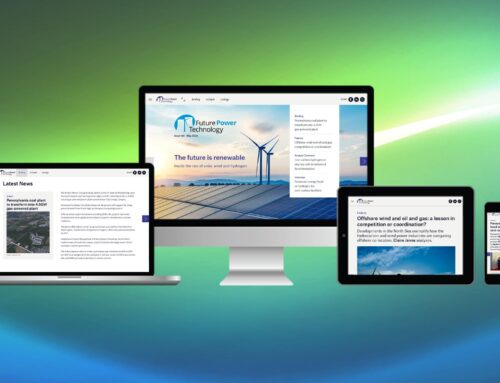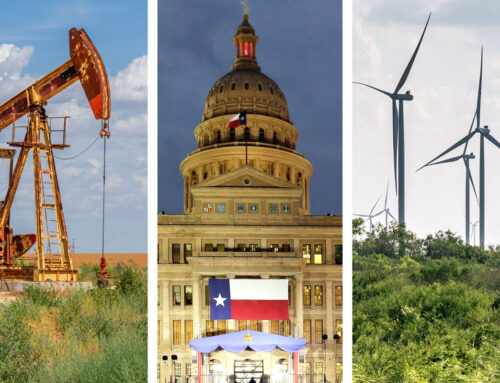Shared transmission network could unlock US$150 billion in renewable e
May 8, 2025
This includes over 130 businesses in Climate Group’s RE100 campaign that operate in Indonesia, which represent 3 terawatt-hours of annual electricity demand. RE100 is a global initiative led by the Climate Group in partnership with the non-profit Carbon Disclosure Project (CDP), bringing together influential companies committed to sourcing 100 per cent of their electricity from renewable sources by 2050.
Through the joint transmission network utilisation scheme, popularly known in other countries as power wheeling, non-utility stakeholders can have open access to Indonesia’s public transmission infrastructure, through which they can deliver electricity from private generation sources to private customers by paying a transmission fee.
This enables different stakeholders to access the grid owned by Indonesia’s state utility company PLN, allowing end-users to access renewable energy directly from generation sites and expanding market access for clean energy producers.
The joint report suggests that Indonesia can “accelerate the development of renewable energy” through this method and lessen the burden on the state budget to scale renewable energy by attracting more private investments.
Power wheeling has the potential to finance the estimated US$5 billion needed annually for power generation and bridge the US$146 billion investment gap required to meet Indonesia’s 2030 climate goals – which include achieving 26 per cent renewable energy in its national energy mix. A recent Climate Analytics report found the country has marginal renewable energy pipeline and limited new investments towards wind and solar projects, despite its vast potential.
IEEFA’s strategic energy finance advisor for Asia, Grant Hauber who co-authored the report, noted that shared access to transmission networks is increasingly being adopted across Southeast Asia as a strategy to attract private capital into the renewable energy sector.
“For industries, especially RE100 members, sharing access to the grid can accelerate progress toward the goal of achieving 100 per cent renewable energy in their supply chains by 2050,” he said.
Indonesia’s neighbouring countries, Vietnam and Malaysia have introduced similar power wheeling systems, enhancing their international competitiveness and driving renewables growth. Like Indonesia, both countries have state-owned utilities which are responsible for purchasing electricity from multiple generators and selling it to distributors or end-users.
However, Vietnam and Malaysia have electricity markets in which generation, transmission, and distribution are separated into distinct entities. Both single buyers and grid operators are independent of state-owned utility companies, which means the grid facilitates a service rather than offering a traditional, fully vertically integrated approach.
“Direct negotiations between renewable developers and buyers allow an acceptable base price for the electricity and other critical terms of service without undermining the utility’s authority. This unbundled arrangement can speed up the process of renewable additions to the grid,” Hauber states, adding that Malaysia and Vietnam also use spot market-like mechanisms to encourage renewable energy developers in the electricity market – a system that is currently not available in Indonesia.
Scaling renewable energy remains crucial for Indonesia’s 2040 coal phase out plan and to achieve its 2060 net-zero climate target as well as support green economic growth.
“As Indonesia strives to drive up its renewable generation capacity, with a target of an additional 75 gigawatts on the grid by 2040, the country must attract private investment to successfully accelerate its energy transition,” the report said.
It further emphasised that national energy policies such as the New and Renewable Energy Bill (RUU EBET), the National Energy Plan (KEN), and the state utility’s electricity supply business plan (PLN RUPTL) must align more closely with renewable energy goals and create stronger incentives to draw in private capital.
Currently, limited renewable energy procurement options for companies and the geographic disconnect between Indonesian regions richer in renewable energy potential than others pose major barriers to private sector participation. Indonesia offers abundant renewable resources such as solar potential in eastern provinces like East Nusa Tenggara and wind energy opportunities in southern Sulawesi, but these are often located far from industrial and urban demand centres like Java and Sumatra.
At present, companies looking to procure renewable energy in Indonesia are mostly restricted to unbundled Renewable Energy Certificates (RECs) or direct agreements with PLN, which offer limited flexibility and scalability.
This disconnect increases transmission costs and reduces project bankability, making it harder for private developers to enter the market.
While Indonesia’s current legal framework for power supply does permit a basic form of shared grid access, it lacks the structure and incentives needed for broad private sector adoption.
“However, structured correctly, this platform for corporate renewable procurement in Indonesia would be a win-win, helping corporates achieve their renewable energy targets, while offering a predictable, long-term revenue stream for PLN,” the report highlighted.
To address these barriers, it recommends that the government of Indonesia integrate clear provisions supporting a regulated joint transmission network utilisation scheme into key national energy plans and legislation.
This includes incorporating such language into the upcoming RUU EBET, particularly under Articles 29A and 47A, which facilitate network cooperation for new renewable energy supply. It also urges a revision of PLN’s RUPTL to formally allow regulated access for private entities to PLN’s transmission infrastructure.
Beyond policy inclusion, the report stresses the importance of maintaining a balanced and transparent energy market, where PLN remains a central stakeholder. This involves ensuring a reliable balance of electricity supply and demand, developing fair pricing models for green services, and enhancing transparency in cost structures and system planning.
Under existing market regulations, the report suggests that a structured transmission sharing scheme be developed and implemented with several core principles, including transmission access, fair and transparent tariffs, reliable interconnections and clear contractual agreements.
It also urges the government to work towards “longer term regulatory transformation that maximises the potential of joint transmission network utilisation in Indonesia” through transparent, upfront charges to finance grid upgrades and capacity expansion. The report also recommends an annual quota system to ensure efficient, stable use of grid capacity for renewables, and the creation of a separate transmission subsidiary and independent tariff regulator under PLN.
Search
RECENT PRESS RELEASES
Related Post



